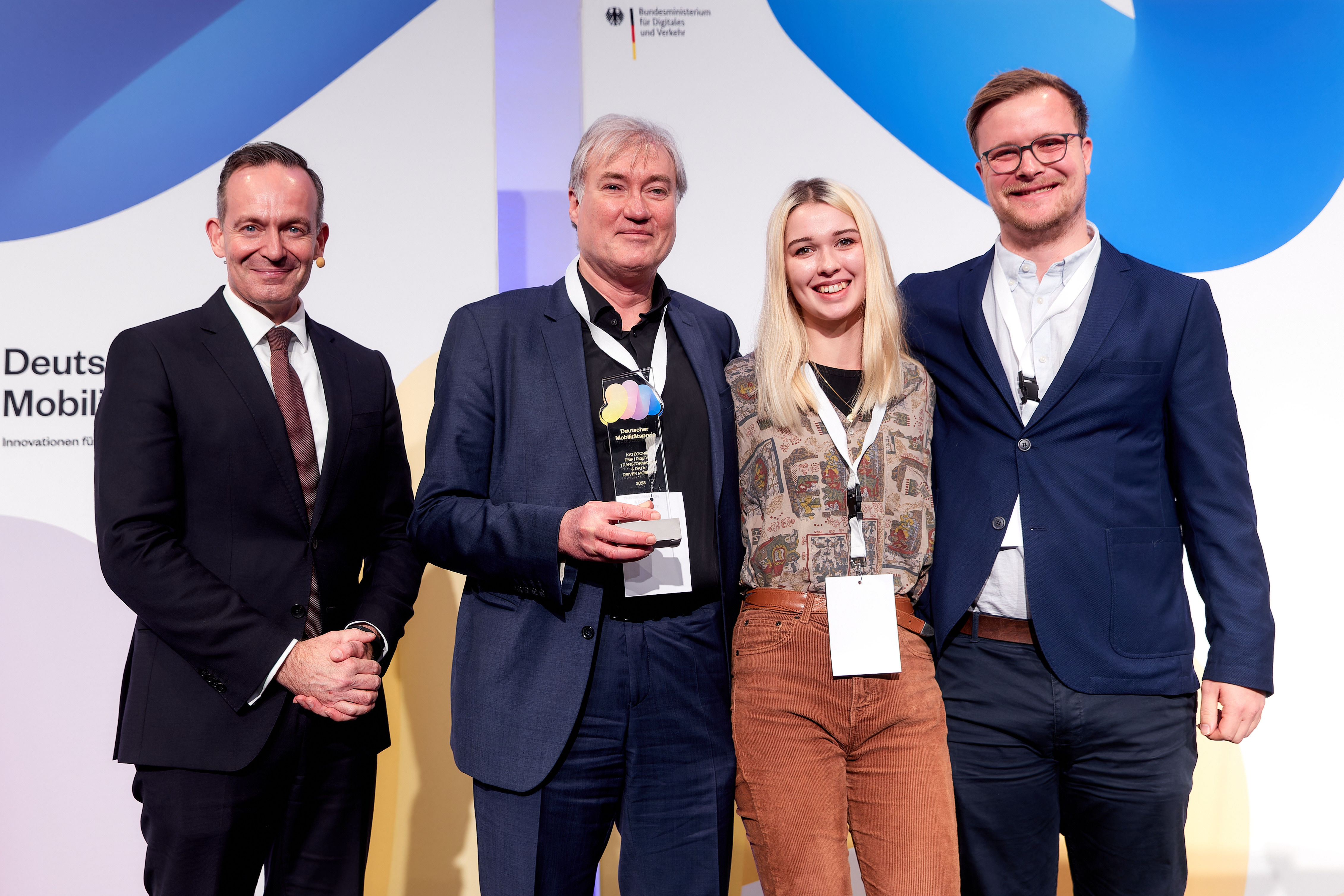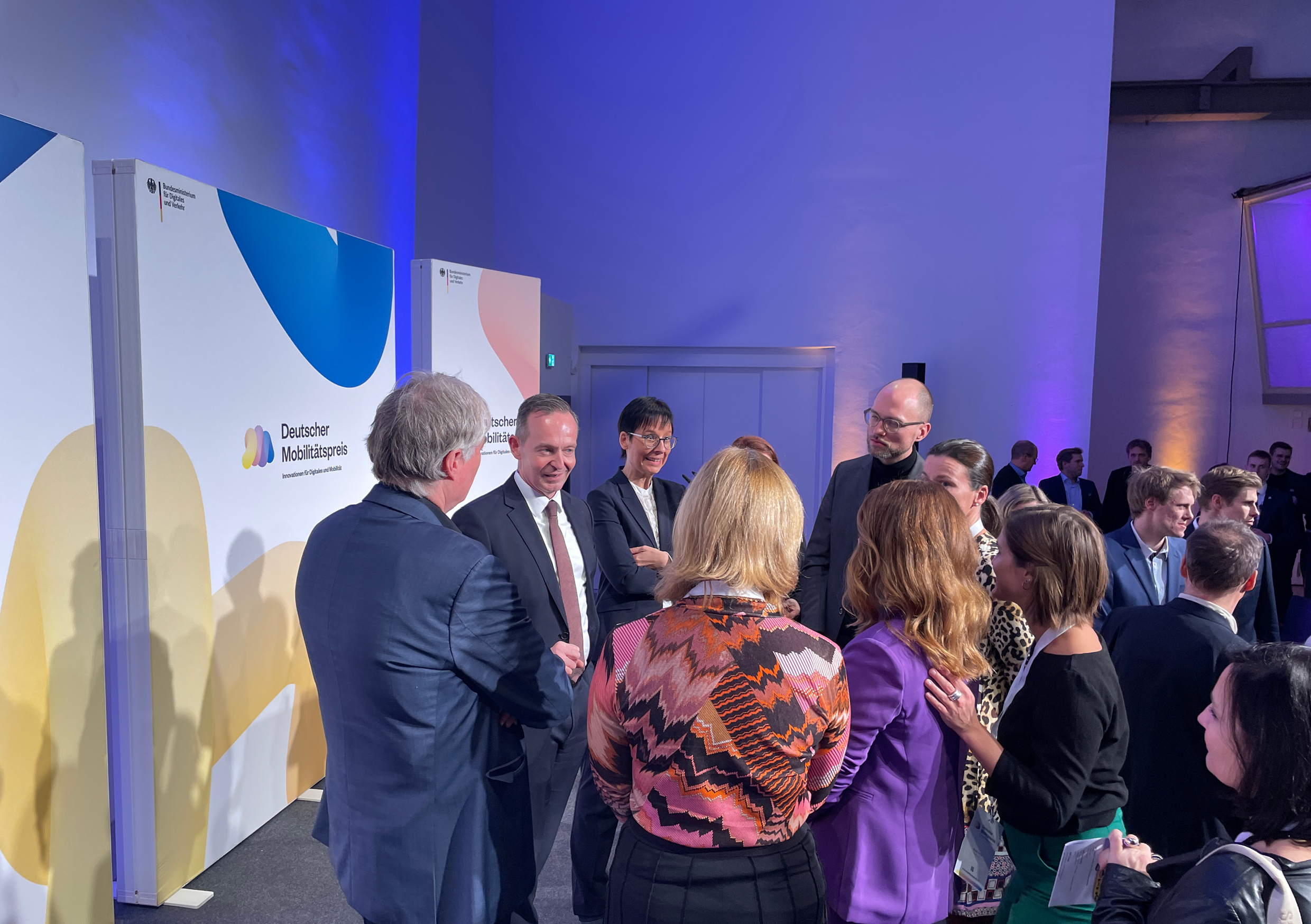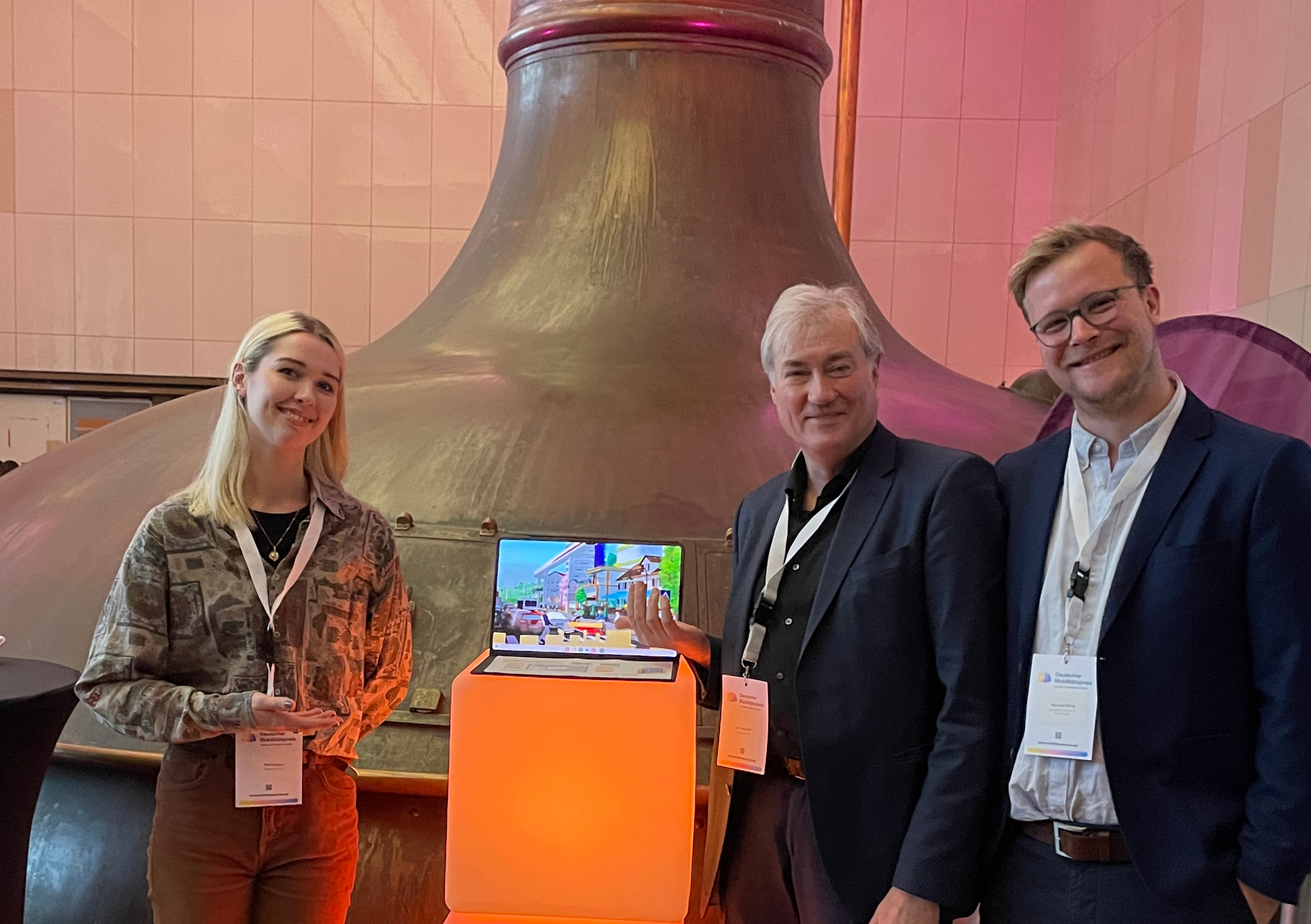The MobileCity simulator of Fraunhofer, KIT, and takomat wins the German Mobility Award
The research project MobileCityGame and the MobileCity app have won the German Mobility Award. Led by the Fraunhofer Institute for Systems and Innovation Research ISI, a team of around 30 persons have developed a unique simulator to plan sustainable mobility systems in cities. The app uses gamification to make the transformation of the transport sector, which is needed to achieve the climate goals, comprehensible and accessible to all in a playful manner.
The transport sector contributes around one fifth of Germany’s greenhouse gas emissions and the measures taken so far to reduce them are not enough. So how should cities and communities adapt their local mobility systems? A consortium made up of Fraunhofer ISI, Fraunhofer IOSB, the Karlsruhe Institute of Technology (KIT) and takomat GmbH developed a powerful simulator to plan sustainable and affordable mobility systems. The research project has now been given the German Mobility Award in the category “Digital Transformation & Data Driven Mobility”.
The award is one of the most important in the digital and mobility field and is presented each year by the German Federal Ministry for Digital and Transport. On Thursday, November 30, 2023, Germany’s transport minister, Dr. Volker Wissing, handed the award to Dr. Claus Doll from Fraunhofer ISI, Michael König from KIT and Nina Röser from takomat GmbH, the company responsible for the app’s technical implementation.
MobileCity app appeals to both professionals and a wider audience
“We wanted to democratize the use of transport and sustainability models with the MobileCity app and make them accessible to all”, said Dr. Claus Doll, project manager at Fraunhofer ISI at the award ceremony in Berlin. The app developed by the researchers for smartphones and tablets combines scientific simulation models with a user-friendly interface. This means it can be used as a simple display to visualize mobility models, for instance, when teaching or for participatory processes: The playful approach makes it easier to understand the complex interrelationships in transport systems.
However, it can also be used as a professional simulation tool in research and municipal transport planning. The app is based on different simulation and analysis models, professional expertise, and data from the city of Karlsruhe. It is the only app in the world to run a complete local transport model on digital devices.
How the MobileCity app works
In the prototype of the MobileCity app, which is available in the Apple and Google app stores for Android and iOS devices, anyone can try their hand at being an administrator and attempt to reach climate neutrality by 2050 by applying a wide range of different measures based on the example of the city of Karlsruhe. There are many different options for taking action, for example, constructing cycle lanes, setting parking fees or expanding charging infrastructure for e-mobility. Every decision has complex consequences for the local population’s level of satisfaction, the climate, and the municipal budget. The powerful game engine of MobileCityGames continuously calculates the city’s development during one game, which lasts about 15 minutes but simulates 30 years of urban development.
The simulation incorporates numerous parameters including population changes, the development of vehicle fleets or changes in the electricity mix. The calculation is based on several dynamically interrelated models and distinguishes individual city districts, age groups and propulsion systems. By integrating the latest findings from psychology and transport economics, the app can be used to create and try out realistic scenarios for tomorrow’s mobility.
MobileCity app extension planned for additional cities
MobileCityGame has already been used at several workshops and specialist international conferences. Now the plan is to extend it and transfer it to other cities. “The follow-up project CarGoNe City plans to extend the app to urban logistics and three European cities”, explains Claus Doll. The app will be used in a seminar at KIT during the winter term 2023/24 and other projects are being considered.
“We would like to thank all those who helped us develop MobileCityGame and contributed to us winning the German Mobility Award”, says Claus Doll. “But software development never really ends. We are continuing our work on making MobileCity app fully operational in strategy development, policy communication and teaching.”

The Fraunhofer Institute for Systems and Innovation Research ISI analyzes the origins and impacts of innovations. We research the short- and long-term developments of innovation processes and the impacts of new technologies and services on society. On this basis, we are able to provide our clients from industry, politics and science with recommendations for action and perspectives for key decisions. Our expertise is founded on our scientific competence as well as an interdisciplinary and systemic research approach.
Last modified:

